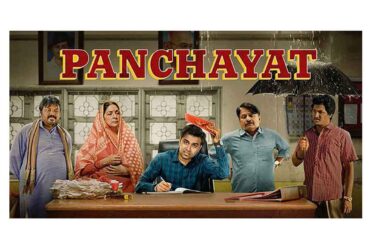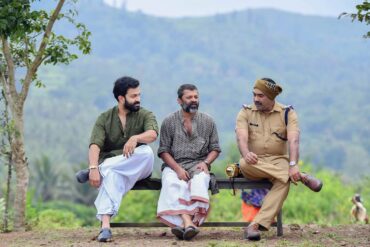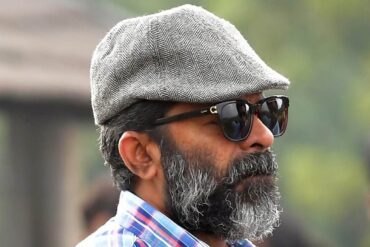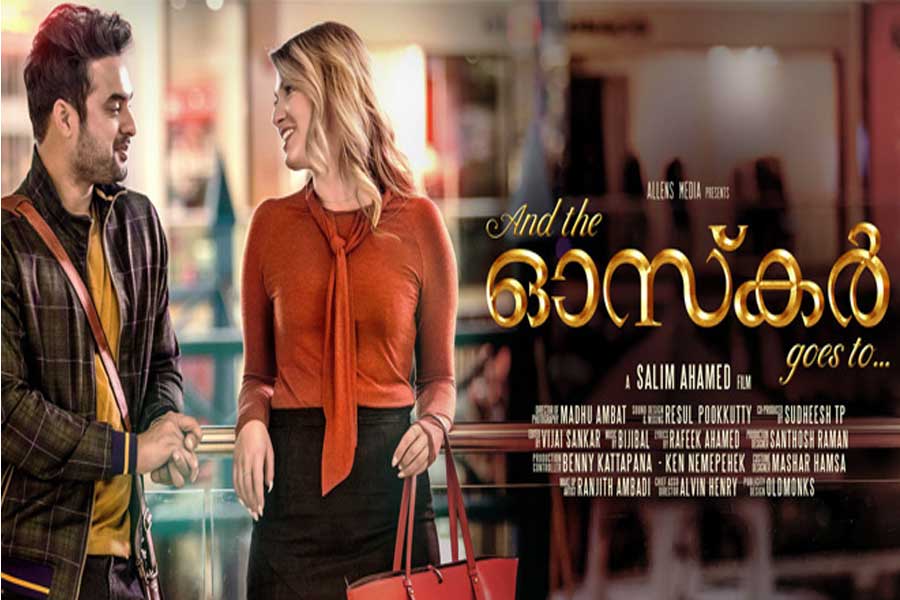Dreamers are naive people who don’t usually realise the fact that what they dream is near-impossible to achieve. So, when you watch movies about such dreamers, you do tend to root for them, because you have not had the courage to chase your own dreams.
Director Salim Ahamed uses this premise in his film, And the Oscar Goes to…, inspired by true events from his own life—thus making it autobiographical—with the disclaimer: “resemblance to any person living or dead is coincidental”. Actor Sreenivasan, who is coincidentally part of this film, used a similar disclaimer for his directorial venture Chinthavishtayaya Shyamala (1999).
It is the story of a youngster with dreams of becoming a filmmaker. He does struggle for a few years, and in the end, decides to turn a director to make his dream come true. Isaak Ebrahem (Tovino Thomas) is one of those thousands living on the margins of the film industry with dreams of getting a foot in.
He has a script ready for the reigning superstar Aravind (Sreenivasan), who agrees to do the part. But, when he finds that things are not moving at the desired pace, Isaak decides to take on the mantle of the producer too. We have seen such a template in films like Udayanannu Tharam (2005).
The difference here is that there are no star tantrums or comic storytelling. The problems are real–like the payments to the daily wage workers, the caterers giving the ultimatum that food will not be served if the pending bills are not settled and the leading lady demanding her remuneration before she gives her last shot.
The film is completed with the generosity and help of his well-wishers which include his family and Chitra (Anu Sithara), who is more than a friend but not a girlfriend for both are reluctant to put their feelings into words. The film gets noticed by the critics and Aravind wins the National Award for his performance and his film gets selected as the official entry for the Oscars.
We see clear parallels between the film and Salim Ahamed’s personal journey as a filmmaker through his first film Adaminte Makan Abu (2011), which was selected as the official entry for Oscars that year and which won Salim Kumar the national award for Best Actor.
The second half is devoted to Isaak’s travel and travails in Los Angeles to get his film nominated for the prestigious award. It seems tougher and more stressful than the making of the film. The budget required for marketing it is three times the budget of the film. The second half gets a bit tiresome for it’s a repetition of his struggle from the first half as he starts from scratch again. Isaak does not really delve into the politics of the Oscar awards and how tough it is to get noticed if you don’t have the money to splurge.
The question that pops up in our mind: Why take so much trouble for this award with his dream of making a good film and garnering a positive response from the audience already achieved? It seems like a roller-coaster ride with Isaak at his naïve best, not doing enough research before he sets off for the US. It was like watching the yesteryear film Ezhamkadalinakkare (1979), said to be the first Malayalam film to be shot in the US, where a bunch of Malayalis go to the US and take in the wondrous sights— but here we are denied that for Isaak is put up at a small house in a remote location much of the time.
Help arrives from unexpected quarters—like the character played by Salim Kumar, whose life story had inspired Isaak to make his film. He seems to be fleecing Isaak all the while, but, when the time comes he is the first one to offer assistance even as Maria (Nikki Rae Hallow), the PR agent signed by Isaak to promote his film among the Academy members, seems to be highly strung and demanding.
Tovino Thomas continues to be in the purple patch of his career. Here he is portrayed as a man confident of his art, yet lacking the communication skills to express his thoughts or to grab an opportunity with both hands.
In the end, what we get from this film is the fact that as a filmmaker one may have the luxury of tying up all the loose ends and giving his story a happy ending, but the reality is always harsh and hurtful.







